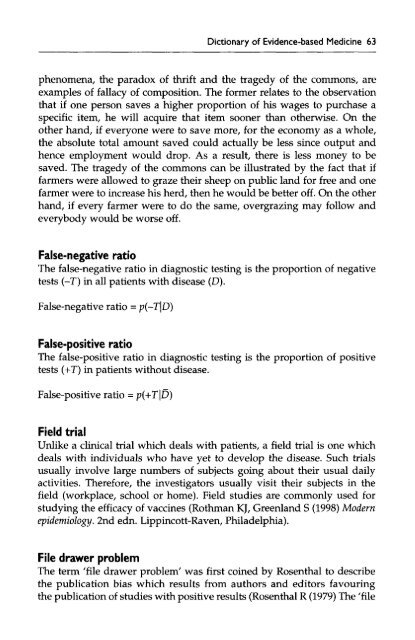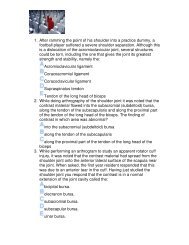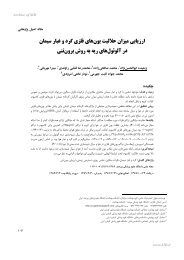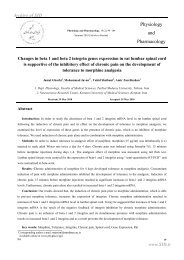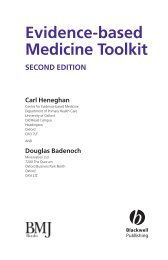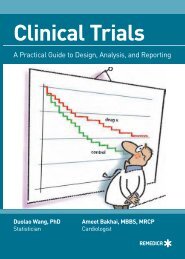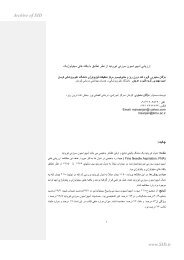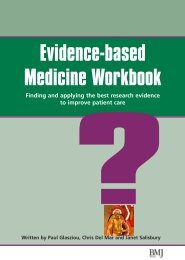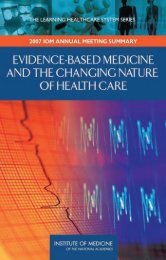Dictionary of Evidence-based Medicine.pdf
Dictionary of Evidence-based Medicine.pdf
Dictionary of Evidence-based Medicine.pdf
Create successful ePaper yourself
Turn your PDF publications into a flip-book with our unique Google optimized e-Paper software.
<strong>Dictionary</strong> <strong>of</strong> <strong>Evidence</strong>-<strong>based</strong> <strong>Medicine</strong> 63<br />
phenomena, the paradox <strong>of</strong> thrift and the tragedy <strong>of</strong> the commons, are<br />
examples <strong>of</strong> fallacy <strong>of</strong> composition. The former relates to the observation<br />
that if one person saves a higher proportion <strong>of</strong> his wages to purchase a<br />
specific item, he will acquire that item sooner than otherwise. On the<br />
other hand, if everyone were to save more, for the economy as a whole,<br />
the absolute total amount saved could actually be less since output and<br />
hence employment would drop. As a result, there is less money to be<br />
saved. The tragedy <strong>of</strong> the commons can be illustrated by the fact that if<br />
farmers were allowed to graze their sheep on public land for free and one<br />
farmer were to increase his herd, then he would be better <strong>of</strong>f. On the other<br />
hand, if every farmer were to do the same, overgrazing may follow and<br />
everybody would be worse <strong>of</strong>f.<br />
False-negative ratio<br />
The false-negative ratio in diagnostic testing is the proportion <strong>of</strong> negative<br />
tests (-T) in all patients with disease (D).<br />
False-negative ratio = p(-T\D)<br />
False-positive ratio<br />
The false-positive ratio in diagnostic testing is the proportion <strong>of</strong> positive<br />
tests (+T) in patients without disease.<br />
False-positive ratio = p(+T\D)<br />
Field trial<br />
Unlike a clinical trial which deals with patients, a field trial is one which<br />
deals with individuals who have yet to develop the disease. Such trials<br />
usually involve large numbers <strong>of</strong> subjects going about their usual daily<br />
activities. Therefore, the investigators usually visit their subjects in the<br />
field (workplace, school or home). Field studies are commonly used for<br />
studying the efficacy <strong>of</strong> vaccines (Rothman KJ, Greenland S (1998) Modern<br />
epidemiology. 2nd edn. Lippincott-Raven, Philadelphia).<br />
File drawer problem<br />
The term 'file drawer problem' was first coined by Rosenthal to describe<br />
the publication bias which results from authors and editors favouring<br />
the publication <strong>of</strong> studies with positive results (Rosenthal R (1979) The 'file


